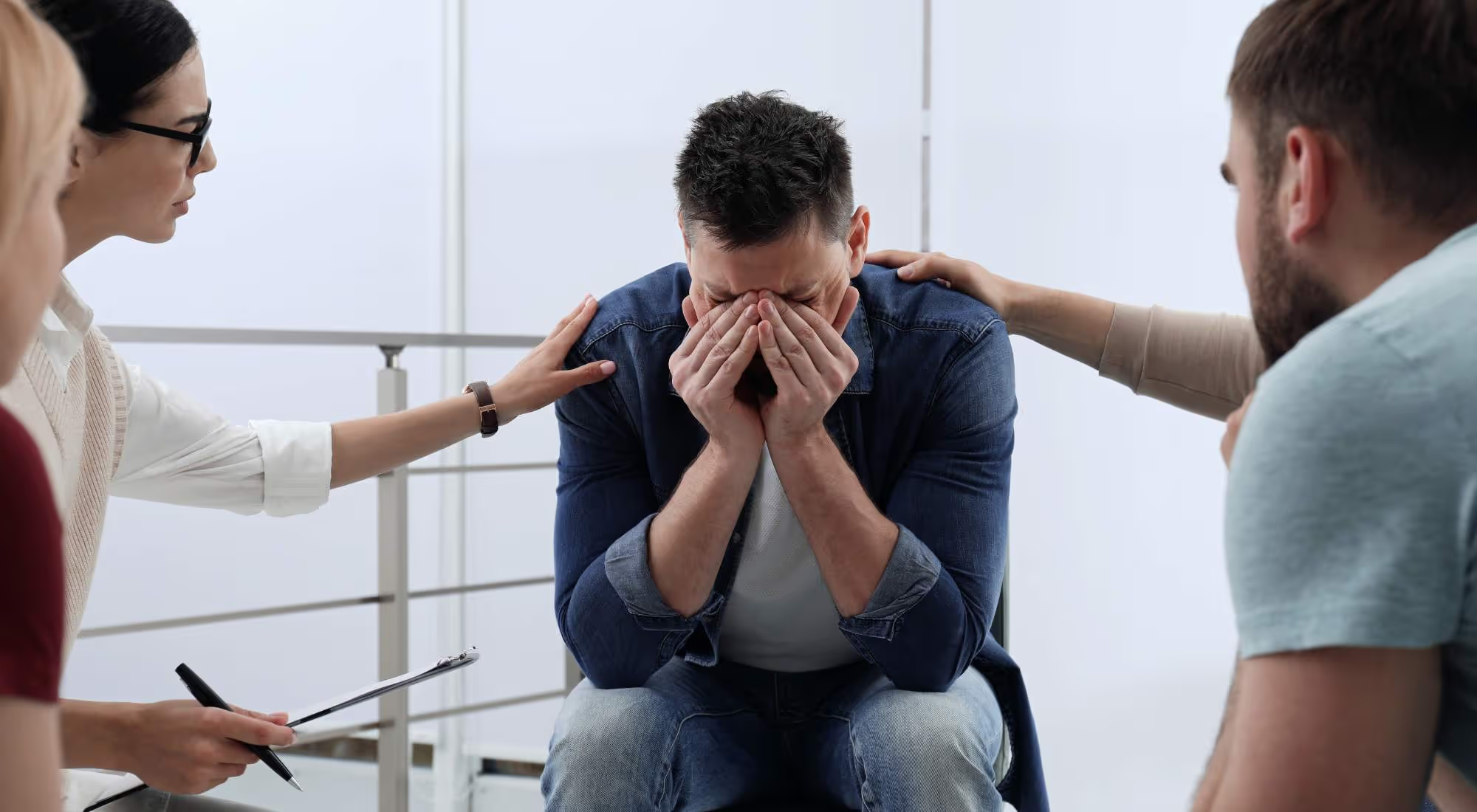When Life Looks Good but Relapse Strikes

You’ve been doing everything right. Life is stable. Routines are in place. Things feel lighter. Then, out of nowhere, relapse happens — and nothing makes sense.
When things are going well, relapse can feel especially disorienting. It raises questions, stirs shame, and shakes trust. But it doesn't mean everything is lost.
At Dove Recovery, we’ve seen how this moment, though painful, can become a turning point. In the pages ahead, we’ll look at why relapse can strike when life appears steady, how to respond with compassion, and what it takes to move forward with clarity, not blame.
Table of Contents
- What Causes Addicts To Relapse?
- Why Do Addicts Relapse When Things Are Good? 10 Common Factors
- How To Prevent Relapse or Manage It When It Happens
- Addiction Treatment and Relapse Prevention From the Experienced and Compassionate Team at Dove Recovery
Relapse can be caused by emotional stress, social pressure, unresolved trauma, overconfidence, or lack of a support system. Recovery is complex, and even with structure in place, triggers can reappear, sometimes unexpectedly.
Common reasons people relapse include:
- Stress or emotional overwhelm
- Exposure to people or places tied to past use
- Mental health challenges (like anxiety or depression)
- Lack of coping tools or support
- Feeling “cured” or overconfident in recovery
Relapse doesn’t always follow a dramatic crisis. In fact, it often begins quietly, with subtle disconnection, emotional discomfort, or the false belief that “just once” won’t hurt. Many people assume relapse happens at rock bottom, but it can just as easily occur when life looks steady on the surface.
We’ll explore that disconnect in the next section, because understanding why relapse happens during the good times is key to building a recovery that lasts.
If you or a loved one is struggling with addiction or relapse, don’t hesitate to seek help. Early support can make all the difference on the road to recovery. Reach out to Dove Recovery to learn how we can guide you through every step.
.jpeg)
Relapse doesn’t always come from a crisis. Sometimes, it shows up when life feels stable — or even great. The truth is, there are many reasons someone might relapse during the “good times,” and understanding these can make all the difference in preventing the next relapse.
Below are 10 common factors we see.
#1: Boredom and Stagnation
When life slows down and routine sets in, the excitement of early recovery can fade. Without new goals or engaging experiences, boredom can creep in — and for many in recovery, boredom is a powerful trigger.
What once felt peaceful can start to feel empty, making old habits seem tempting again.
#2: Overconfidence
Feeling strong in recovery is a good thing, until it leads to risky thinking. Some begin to believe they’re “past” addiction and no longer need support, structure, or accountability.
This overconfidence can result in letting safeguards slip, making someone more vulnerable to triggers they thought they had under control.
#3: Attempt To Avoid Withdrawal Symptoms
Even when recovery looks steady, hidden withdrawal symptoms can linger. Acute withdrawal causes physical discomfort like nausea and sweating, while post-acute withdrawal brings lasting emotional and mental challenges such as mood swings and brain fog.
These persistent symptoms can make staying sober tough, leading some to relapse just to find relief. Addressing both types of withdrawal is key to long-term recovery.
#4: Co-Occurring Mental Health Problems
Many people in recovery also face mental health challenges like anxiety, depression, or PTSD. These conditions can intensify cravings and make coping harder. Without proper treatment for both addiction and mental health, the risk of relapse increases significantly.
#5: Self-Sabotage
Low self-esteem and self-doubt can cause someone to unconsciously undermine their own recovery. Feeling unworthy of success or happiness may lead to choices that trigger relapse, even when deep down they want to stay sober.
#6: Outside Triggers
Triggers fall into two main categories: social and environmental. Social triggers involve people, events, or situations that remind someone of past use. Being around old friends who still use, attending parties, or even certain conversations can stir cravings and tempt relapse.
Environmental triggers are tied to places, routines, or times of day associated with substance use. Walking past a favorite hangout spot or feeling the stress of a particular time, like evenings, can bring back powerful urges.
#7: Lack of Awareness
Relapse can happen when someone isn’t fully aware of their personal triggers or struggles to understand their own thoughts and emotions.
Recovery requires deep self-awareness, which takes time and patience to develop. Without it, feelings can become overwhelming or confusing, and old habits may resurface without warning. It’s important to approach this gently — building awareness is a process, not a failure.
#8: Relying Only on Willpower
Willpower is powerful, but it can quickly wear down when life’s challenges pile up. Recovery needs more than just determination. It requires support, tools, and healthy habits to navigate tough moments without falling back into old patterns.
#9: Lack of Attention to Self-Care
Neglecting self-care can leave someone vulnerable to relapse. Recovery isn’t just about avoiding substances. It’s about nurturing the whole person. When basic needs go unmet, stress and cravings can take over.
Healthy self-care might include:
- Getting enough restful sleep
- Eating balanced, nourishing meals
- Regular physical activity
- Practicing mindfulness or meditation
- Spending time with supportive people
- Setting healthy boundaries
- Engaging in hobbies or meaningful activities
Focusing on these basics helps build resilience and maintain long-term sobriety.
#10: Unrealistic Expectations
Setting goals that are too high or expecting instant perfection can lead to frustration and disappointment. When recovery feels like it’s not progressing fast enough, hope can fade, making relapse more likely. Being patient and setting realistic, achievable goals is key to lasting success.
.avif)
Relapse is a common part of the recovery journey. A study analyzing data from the National Epidemiologic Survey on Alcohol and Related Conditions (NESARC), involving over 34,000 U.S. adults, found that 66.3% of individuals with multiple past-year substance use disorders reported at least one past-year substance use disorder at the 3-year follow-up. This highlights the persistent nature of substance use disorders and the importance of ongoing support and treatment.
If you or someone you care about is facing relapse, here are some strategies to consider:
Preventing relapse:
- Identify and avoid triggers: Recognize situations, people, or emotions that may lead to substance use and develop strategies to avoid or cope with them.
- Establish a support network: Engage with support groups, therapists, or trusted individuals who can offer encouragement and accountability.
- Maintain a healthy lifestyle: Regular exercise, balanced nutrition, and adequate sleep can strengthen both body and mind.
- Practice mindfulness and stress management: Techniques like meditation and deep breathing can help manage cravings and reduce stress.
- Set realistic goals: Establish achievable milestones to maintain motivation and a sense of accomplishment.
Managing after a relapse:
- Seek support immediately: Reach out to a sponsor, therapist, or support group to discuss the relapse and receive guidance.
- Reflect and learn: Analyze the circumstances leading to the relapse to understand triggers and prevent future occurrences.
- Adjust your recovery plan: Modify your strategies or seek additional support to strengthen your recovery process.
- Practice self-compassion: Understand that relapse is a part of recovery, not a failure. Treat yourself with kindness and continue moving forward.
Remember, recovery is a journey, and setbacks are a natural part of the process. You're not alone, and support is always available. Contact Dove Recovery today to find your path forward.

At Dove Recovery, we understand that recovery is a personal and often challenging journey. Relapse doesn’t mean failure. It’s a part of healing that many face.
Our experienced and compassionate team is dedicated to providing individualized treatment plans that address both addiction and the underlying factors contributing to relapse. We offer ongoing support, therapy, and resources designed to empower you or your loved one to build a strong, lasting recovery.
If you’re ready to take the next step or need guidance during a difficult time, know that you don’t have to face it alone. Reach out to Dove Recovery today. Your path to lasting wellness deserves expert care and genuine compassion.
.jpeg)
